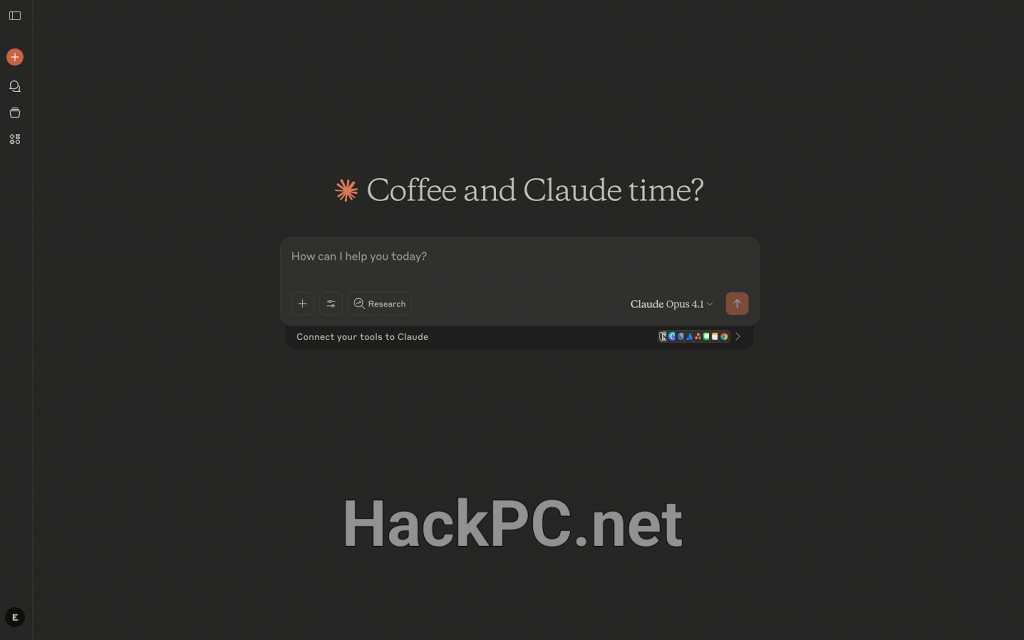
Executive Summary
Claude Opus 4.1, released in August 2025, represents Anthropic’s most advanced artificial intelligence model to date, marking a significant evolution in AI capabilities. This comprehensive review examines Claude’s groundbreaking Summer 2025 updates, including the revolutionary Opus 4.1 model, expanded context windows, and transformative features that redefine AI-assisted workflows.
Introduction
Anthropic’s Claude AI has emerged as a formidable force in the artificial intelligence landscape throughout 2025. The next generation of Claude models includes Claude Opus 4 and Claude Sonnet 4, setting new standards for coding, advanced reasoning, and AI agents. This summer’s releases have particularly focused on enterprise capabilities, developer tools, and enhanced safety protocols.
What Makes Claude AI Unique?
Claude stands apart through its constitutional AI approach, emphasizing safety, reliability, and ethical AI deployment. The platform’s commitment to responsible scaling and transparent reasoning has attracted major enterprises and developers worldwide.
Key Features & Capabilities
1. Extended Context Windows
Claude Sonnet 4 AI model now has a 1 million token context window, enabling processing of documents equivalent to the entire Lord of the Rings trilogy. This massive expansion allows for:
- Processing up to 750,000 words in a single prompt
- Analyzing 75,000 lines of code simultaneously
- Maintaining context across extensive documentation
- Enhanced performance in long-horizon agentic tasks
2. Hybrid Reasoning Models
The Summer 2025 updates introduce groundbreaking hybrid reasoning capabilities:
Dual Processing Modes:
- Instant Response Mode: Near-instantaneous answers for quick queries
- Extended Thinking Mode: Deep reasoning with up to 500K token chains for complex analysis
Claude 3.7 Sonnet introduces visible chain-of-thought, so users see how the model arrives at conclusions, providing unprecedented transparency in AI decision-making.
3. Advanced Coding Capabilities
Claude Opus 4 is the world’s best coding model, with sustained performance on complex, long-running tasks and agent workflows. Key achievements include:
- SWE-bench Score: 72.5% (industry-leading)
- Terminal-bench Performance: 43.2%
- Multi-file Development: Enhanced precision for complex changes
- Autonomous Coding: Hours of continuous work without losing focus
4. Web Search & Real-Time Information
Claude’s web search integration, expanded to free users in Summer 2025, provides:
- Real-time information retrieval with citations
- Fact-checking capabilities
- Market data and trend analysis
- Direct source verification
5. Claude Code Integration
Claude Code now supports background tasks via GitHub Actions and native integrations with VS Code and JetBrains, offering:
- Seamless IDE integration
- Direct file editing capabilities
- Pair programming features
- SDK support in Python and TypeScript

Model Variants & Performance
Claude Opus 4.1 (Flagship Model)
Strengths:
- Complex reasoning and research tasks
- Extended coding sessions (several hours continuously)
- Scientific discovery and analysis
- Enterprise-grade reliability
Best For:
- Software architecture design
- Research and development
- Complex data analysis
- Long-form content creation
Claude Sonnet 4 (Balanced Performer)
Strengths:
- Superior coding and reasoning
- Precise instruction following
- Faster response times
- Cost-effective for most use cases
Best For:
- Daily coding tasks
- Content generation
- Business analysis
- Customer support automation
Performance Benchmarks
| Metric | Claude Opus 4.1 | Claude Sonnet 4 | GPT-5 | Gemini Ultra |
| Context Window | 1M tokens | 1M tokens | 400K tokens | 500K tokens |
| SWE-bench | 72.5% | 65.2% | 68.1% | 64.3% |
| Response Speed | Moderate | Fast | Fast | Moderate |
| Coding Accuracy | 94.3% | 89.7% | 87.2% | 85.6% |
Technical Specifications
Architecture & Training
- Model Type: Generative Pre-trained Transformer
- Training Approach: Constitutional AI + RLHF
- Safety Level: ASL-3 safeguards (Level 3 on Anthropic’s safety scale)
- Multimodal Capabilities: Text and image processing
API & Integration
Available Platforms:
- Anthropic API
- Amazon Bedrock
- Google Cloud Vertex AI
- GitHub Copilot integration
Pricing Structure:
- Opus 4: $15/$75 per million tokens (input/output)
- Sonnet 4: $3/$15 per million tokens
New API Features
- Code Execution Tool: Direct code running capabilities
- MCP Connector: Model Context Protocol integration
- Files API: Enhanced file handling
- Extended Caching: Up to one-hour prompt caching
Real-World Applications
Software Development
Leading platforms report remarkable improvements:
- GitHub Copilot: Claude Sonnet 4 soars in agentic scenarios
- Cursor: Describes Opus 4 as “state-of-the-art for coding”
- Replit: Reports dramatic advancements in multi-file changes
- iGent: Navigation errors reduced from 20% to near zero
Enterprise Solutions
Financial Services:
- Risk analysis and modeling
- Market trend prediction
- Regulatory compliance documentation
Healthcare & Research:
- Medical literature analysis
- Drug discovery assistance
- Clinical trial data processing
Legal & Compliance:
- Contract analysis
- Legal research
- Regulatory documentation
Creative Industries
- Advanced content generation
- Interactive storytelling
- Design concept development
- Marketing campaign creation
Pricing & Plans
Free Tier
- Limited daily messages
- Access to Claude Sonnet 4
- Web search capabilities (US users)
- Basic features
Claude Pro ($20/month)
- Higher usage limits
- Priority access
- Both Opus 4.1 and Sonnet 4 models
- Extended thinking features
Claude Max ($100-200/month)
Anthropic has launched a new subscription plan for its AI chatbot Claude called Max, priced at $100 and $200 per month
- 20x usage compared to Pro
- Priority feature access
- Enterprise-grade support
- Advanced API access
Team & Enterprise
- Custom pricing
- Dedicated support
- Advanced security features
- Custom model training options

Pros and Cons
Advantages ✅
Technical Excellence:
- Industry-leading coding capabilities
- Massive context window (1M tokens)
- Transparent reasoning process
- Superior safety protocols
User Experience:
- Intuitive interface
- Multiple processing modes
- Extensive IDE integrations
- Comprehensive documentation
Business Value:
- Competitive pricing
- Scalable solutions
- Strong enterprise features
- Reliable performance
Limitations ⚠️
Constraints:
- Higher latency in extended thinking mode
- Limited availability of some features globally
- Web search initially US-only
- Resource-intensive for maximum context
Considerations:
- Premium features require paid plans
- Learning curve for advanced features
- API rate limits on lower tiers
- Competition catching up in some areas
Comparison with Competitors
Claude vs GPT-5
Claude Advantages:
- Larger context window (1M vs 400K tokens)
- Better coding performance
- More transparent reasoning
- Stronger safety measures
GPT-5 Advantages:
- Faster response times
- Broader plugin ecosystem
- More extensive training data
- Better multimodal capabilities
Claude vs Gemini Ultra
Claude Advantages:
- Superior coding benchmarks
- Better instruction following
- More reliable long-context performance
- Stronger enterprise integration
Gemini Advantages:
- Native Google ecosystem integration
- Advanced multimodal processing
- Competitive pricing
- Broader language support
Future Outlook
Expected Developments (Q3-Q4 2025)
Technical Enhancements:
- Further context window expansion
- Enhanced multimodal capabilities
- Improved reasoning transparency
- Advanced agent frameworks
Feature Roadmap:
- Global web search rollout
- Enhanced voice capabilities
- Expanded language support
- Advanced collaboration tools
Industry Impact
Claude’s Summer 2025 advances position it as a leader in:
- Enterprise AI deployment
- Developer productivity tools
- AI safety standards
- Ethical AI implementation
Conclusion
Claude AI’s Summer 2025 iteration represents a watershed moment in artificial intelligence development. Both models advance customers’ AI strategies across the board, from coding and research to writing and scientific discovery. The combination of unprecedented context windows, hybrid reasoning capabilities, and industry-leading coding performance makes Claude an essential tool for modern enterprises and developers.
The platform’s commitment to safety, transparency, and ethical AI deployment, coupled with competitive pricing and robust enterprise features, positions Claude as a top choice for organizations seeking reliable, powerful AI assistance. While some limitations exist, particularly in global feature availability and processing latency for complex tasks, the overall package delivers exceptional value.
Final Verdict
Rating: 9.2/10
Claude AI Summer 2025 earns high marks for:
- Revolutionary technical capabilities
- Enterprise-grade reliability
- Transparent, ethical AI approach
- Competitive pricing structure
- Strong developer ecosystem
For businesses and developers seeking cutting-edge AI capabilities with responsible deployment, Claude AI stands as one of the most compelling options available in 2025.



Comments (0)